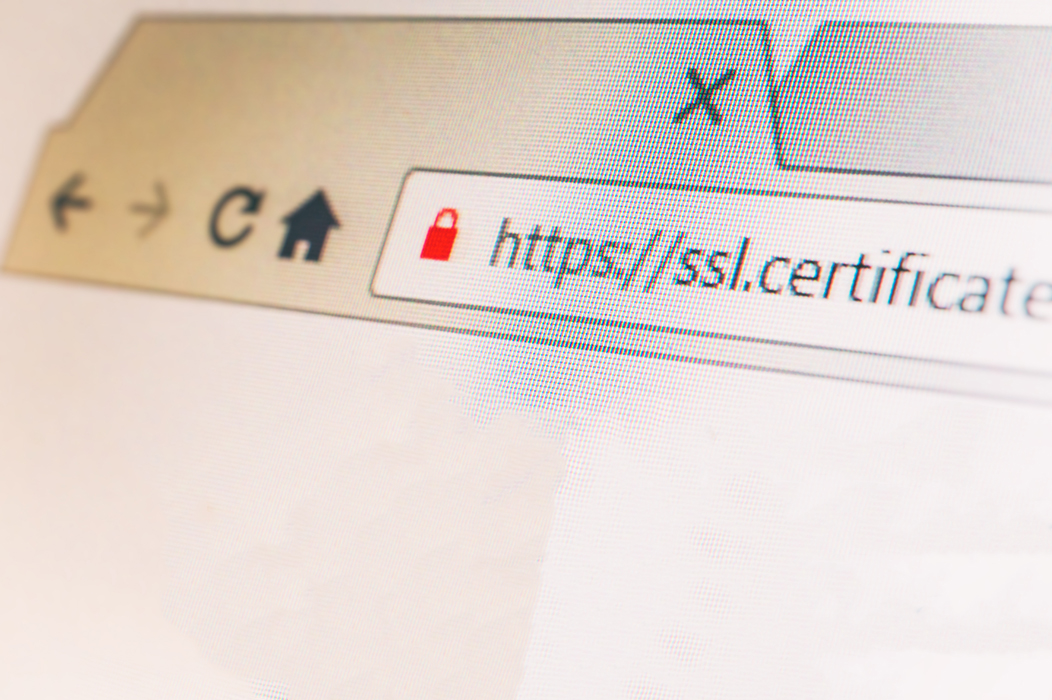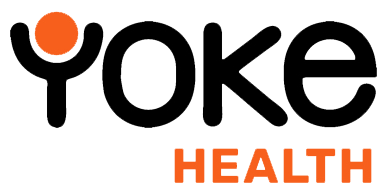SSL – Google has spoken (again). Here’s what you need to do now…
Posted in Digital Healthcare Insights
Jack Tracy - Lead Developer
When Google makes an search-algorithm update, EVERYONE knows about it.
As the world’s largest search engine – powering 88.47 percent of ALL searches, their updates can make or break a business overnight – pushing some up, some down and writing others off entirely.
Last year, Google announced that they wanted all sites to have an SSL certificate. The consequence of not doing so? Google would flag up your website as being ‘unsecure’.
In any industry, this would be bad for business. But for healthcare sector websites where ‘trust’ is crucial, the ‘Not Secure’ red flag can be a major barrier to entry.
Presumably you knew all that already? Now for the bad news (again). Google isn’t satisfied with what most website owners have done – which in most instances is to slap an SSL certificate somewhere on their website. Now, they’re taking their stance on SSL standards to Chrome. Here’s why, and what you need to do now.
Counting down to January 2020
“Today we’re announcing that Chrome will gradually start ensuring that https:// pages can only load secure https:// subresources. In a series of steps outlined below, we’ll start blocking mixed content (insecure http:// subresources on https:// pages) by default. This change will improve user privacy and security on the web, and present a clearer browser security UX to users”.
‘No More Mixed Messages About HTTPS’ – Chromium Blog
That technical talk up there means that Google wants you to take SSL seriously, with HTTPS running across your entire site and all content ‘types’ (images, video, downloads etc); not just some of it.
How can we help?
We go way beyond installing an SSL certificate and having done with it. And not only for Google’s sake, either. Our three-step infrastructure and security overhaul takes a good look at your website and puts in place some important protective measures that’ll prove essential come January on beyond…
We’ll scan ALL of your content – with no stone left unturned
Some of your content may be tucked away in the annals of time (you may even have forgotten about it completely). At the moment, Google Chrome will offer your visitors the option of downloading or viewing this content even if it isn’t delivered on HTTPs. But from January, Chrome will simply block the content and potentially slap you with a penalty.
This applies to all file types, from documents to videos, onto images and live pages.
Set up scan and fix solutions – and set them to autopilot
Who wants to be manually checking their infrastructure on a dreary Monday morning? Not our clients, that’s for sure!
Our automated scan and fix solutions can keep an eye on your site 24/7, picking up on issues if and when they arise and addressing them there and then.
Site infrastructure optimisation
Running under the hood of your website is complex code. At the risk of sounding like nerds, digital-infrastructure optimisation needs to be taken seriously, anything less and you could be left with a website that is slow to use, gets less search traffic and is open to hackers.
Yoke Healthcare – taking care of your website’s vital signs.
Ready for your check-up?

Monthly Archives
- July 2023
- July 2020
- June 2020
- May 2020
- April 2020
- March 2020
- February 2020
- January 2020
- December 2019
- October 2019
- September 2019
- August 2019
- July 2019

